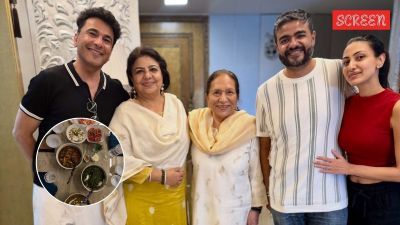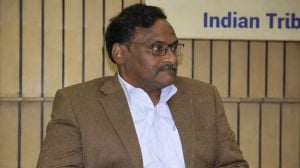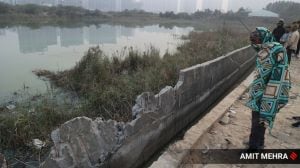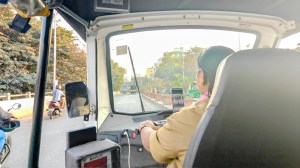Awaiting a verdict
With the Supreme Court reserving its verdict on Thursday, the waiting continues. Till the apex court decides whether or not to vacate the st...

With the Supreme Court reserving its verdict on Thursday, the waiting continues. Till the apex court decides whether or not to vacate the status quo it ordered last year on the land acquired by the government around the disputed site at Ayodhya. Till it decides whether or not the undisputed land can be given back to its original owner, and whether or not it may be used for conducting religious activity, even as the hearings on the title suit continue apace. The nation must hold its breath, also, till the Archaeological Survey of India completes the excavation just ordered by the Lucknow bench of the Allahabad High Court to determine whether a temple once stood on the disputed area where the Babri masjid was demolished in 1992. In this uncertain time 8212; before the verdict comes in from Delhi and later from Lucknow 8212; is the moment, perhaps, to confront a question that has festered for almost as long as the 8216;Ayodhya issue8217;: Will the judicial verdict resolve the issue, once and for all? Will a verdict, whichever side it may favour, finally bring closure? Or are we guilty of demanding too much of the courts? Are we looking to the courts to step in and broker a peace in a tussle that is being played out in the political domain? It is difficult to avoid the suspicion that the judicial tangle on Ayodhya is an abdication by the political leadership on a crucial national issue.
Even as the courts have been seized of the matter, it has been picked up and foregrounded in the political space. The emotive dispute has been used to inflame passions, and in the run-up to elections, to unabashedly serve the political agenda. Over the years, it has become a political football, a shorthand for communal tensions, the flashpoint that has sparked a political idiom which draws on an incendiary mix of faith, resentment and grievance. Will those who arrogate to themselves the right to speak for a 8216;Hindu8217; constituency, those who have assiduously stoked and cultivated a popular fervour, now be fully persuaded by what the courts have to say? Or will they, if the verdict is unfavourable to them, trot out the argument that the matter is one of 8216;faith8217;, after all? In a dispute as vexed as this, will both sides accept a characteristically tidy legal solution? Will it leave no leftover tensions, no untied threads?
It is difficult not to point out in this moment as we wait for the court verdict that a dispute as vexed as this one cries out for a courageous political initiative. It asks for a statesman-like vision rather than short term political calculation. One that can hammer out a solution through negotiation, a participatory process of give and take. Such a political leadership alone can ensure that this wearying dispute is not handed down to the next generation.
- 01
- 02
- 03
- 04
- 05































